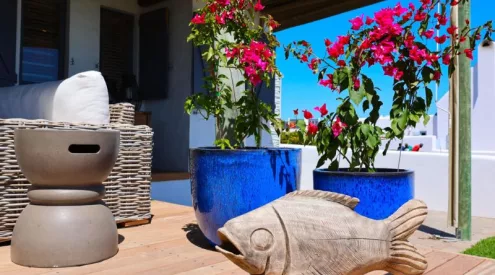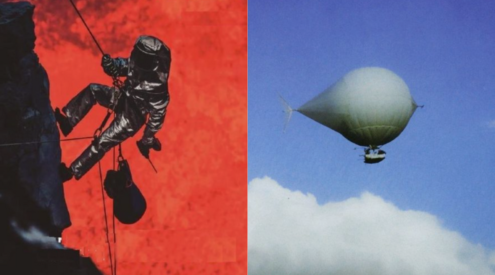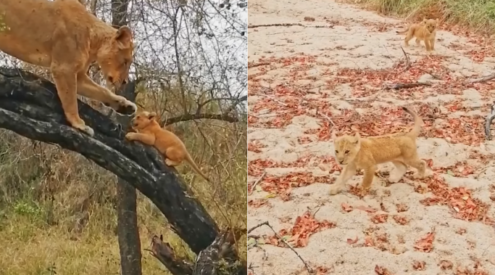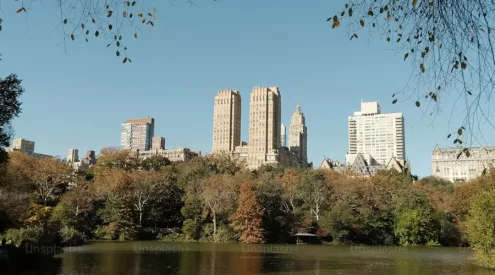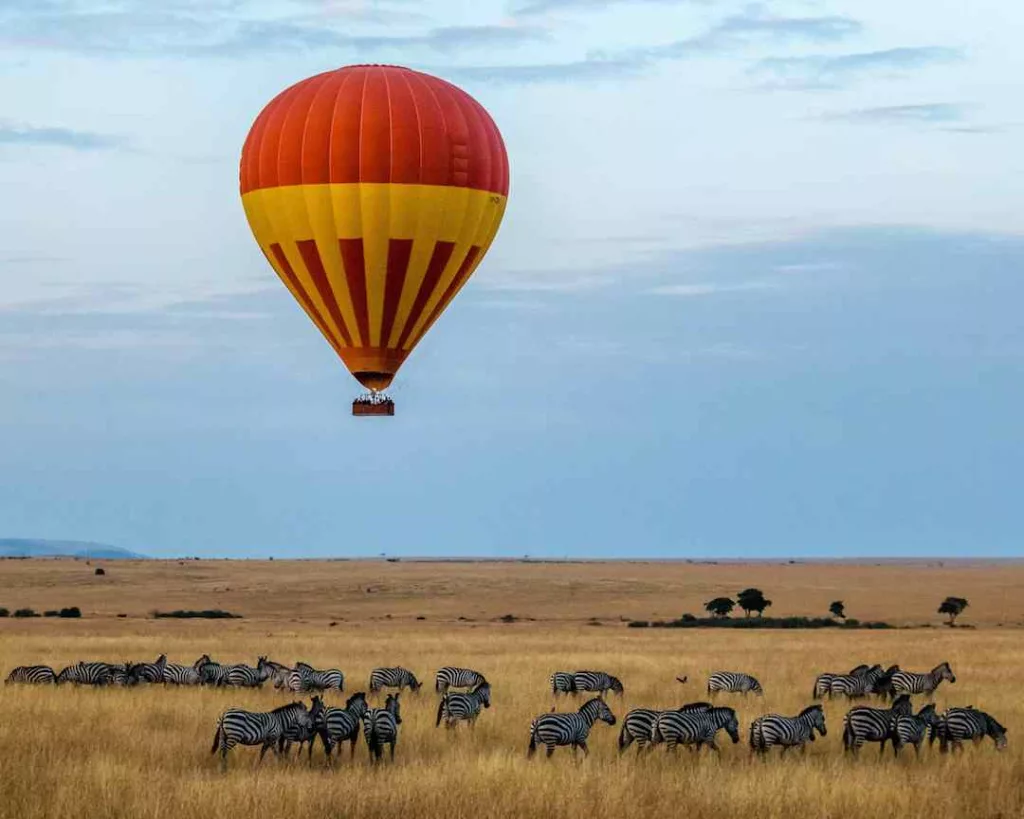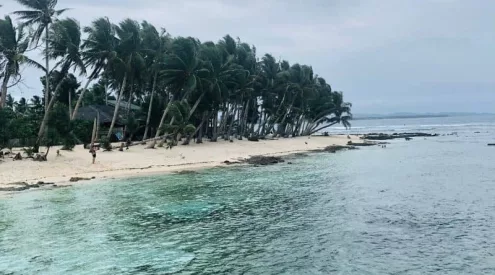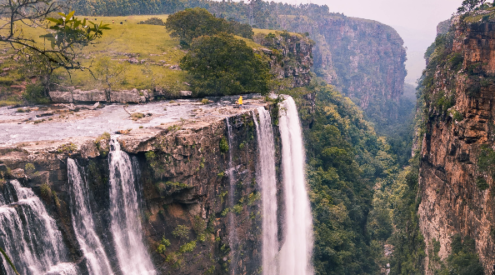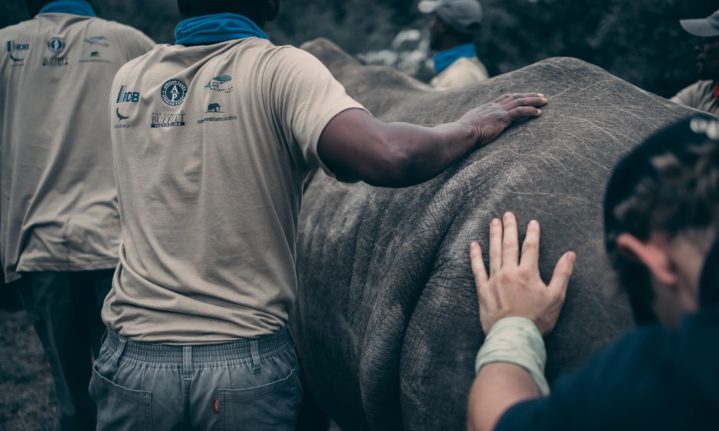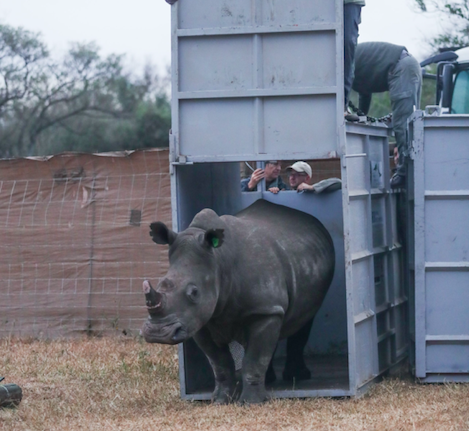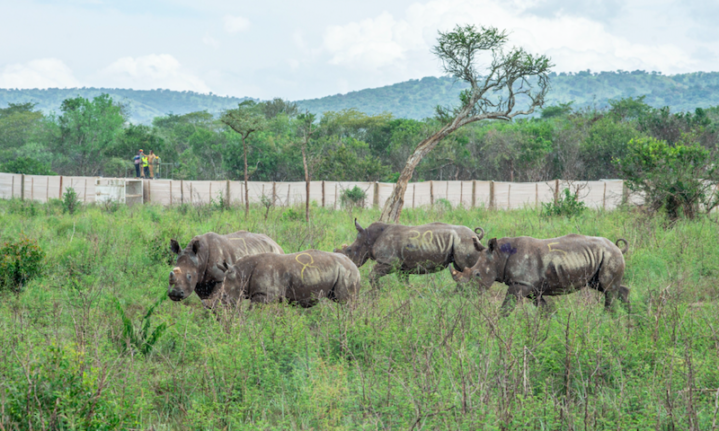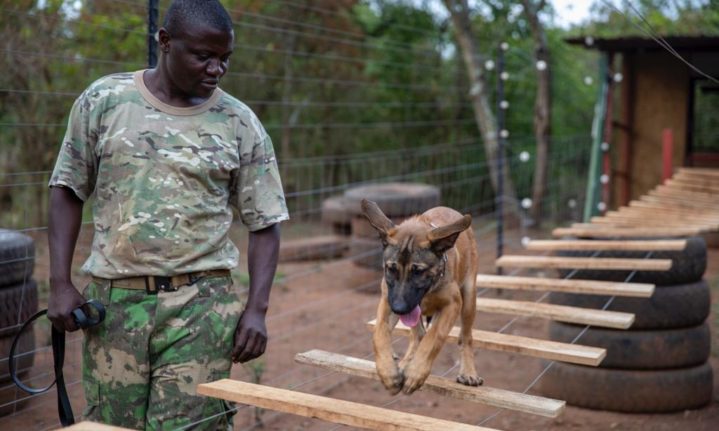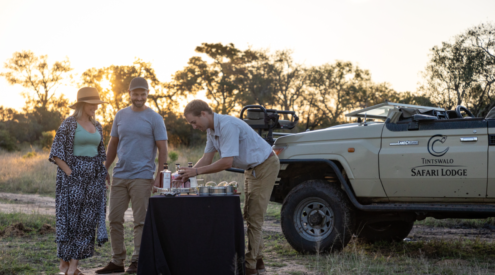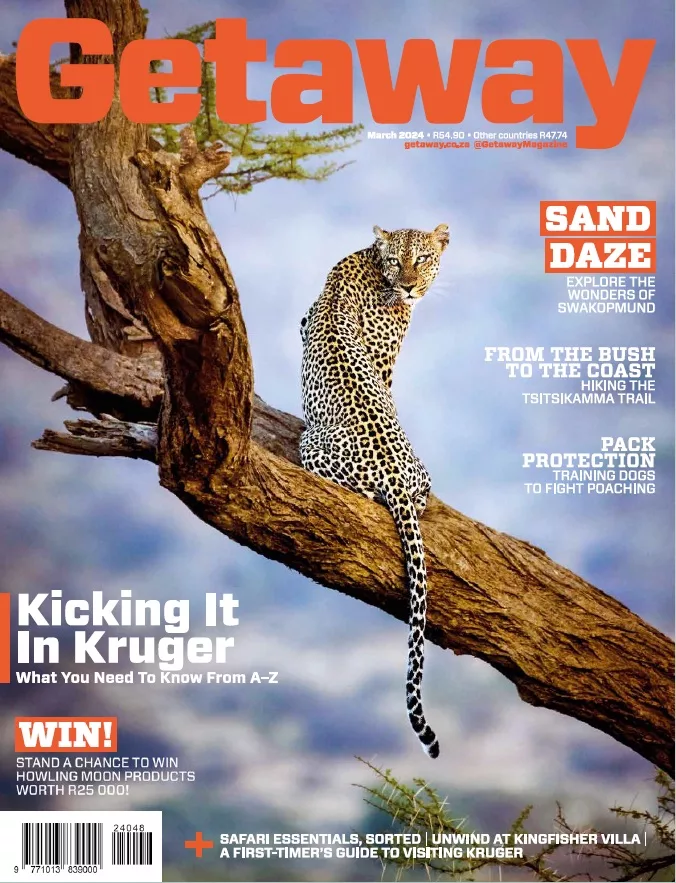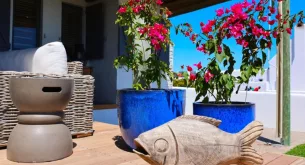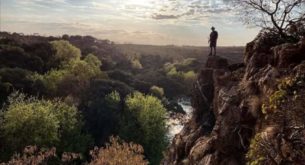In the largest single rhino translocation ever undertaken, 30 white rhinos have been introduced to Akagera National Park in Rwanda, sourced from andBeyond Phinda Private Game Reserve in South Africa.
The translocation was carried out through a collaboration between the Rwanda Development Board, African Parks and andBeyond, with funding provided by the Howard G. Buffett Foundation.

A tranquilised rhino is gently walked to a crate. Picture: Martin Meyer & African Parks
This historic initiative aims to extend the white rhino range and create a secure new breeding stronghold in Rwanda, supporting population growth to ensure the long-term survival of the species in the wild as high levels of poaching continue to exert unsustainable pressure on current populations. The translocation will also help to enhance Akagera’s contribution to Rwanda’s wildlife economy, ensuring that the conservation of their outstanding natural landscapes generates long-term benefits for local communities and all Rwandans.
‘This is an opportunity for Rwanda to substantially advance its contribution to rhino conservation, with Akagera poised to become a globally important sanctuary for black and now white rhinoceros. This is timely for the conservation of these incredibly threatened species. We’re extremely proud of our conservation partnerships and our national parks, which are playing a pivotal role in meeting biodiversity targets and in driving sustainable, transformative, equitable socio-economic growth,’ said Ariella Kageruka, RDB Acting Chief Tourism Officer.
Sourced from andBeyond Phinda Private Game Reserve, set within the Mun-Ya-Wana Conservancy in South Africa, 30 rhinos were flown to Rwanda and transported to Akagera National Park on November 27. Their journey covered a total distance of over 3,400 kilometers and forms the largest single rhino translocation in history. The rhinos will be monitored daily in Akagera by a dedicated team and a specialist veterinarian who will be overseeing their acclimation.
‘Introductions to safe, intact wild landscapes are vital for the future of vulnerable species like white rhino, which are under considerable human-induced pressures,’ said African Parks’ CEO Peter Fearnhead. ‘We’re grateful to our partners for making this historic translocation possible – the Rwandan Government for their forward-thinking conservation leadership, and the Howard G. Buffett Foundation and andBeyond for their integral support. Successes in parks like Akagera in Rwanda and Phinda in South Africa demonstrate how preventing the decline of nature propels prosperity and development.’
White rhinos are classified as near threatened with numbers declining across existing strongholds, largely due to poaching driven by demand for their horns. The introduction of southern white rhinos to Akagera expands their range to offer more safe areas for the species. The successful conservation management of Phinda in South Africa makes the reserve a valuable source for important new rhino subpopulations.

Rhino released into temporary boma. Picture: Howard Cleland &African Parks.
‘We have meticulously managed and grown the rhino population at Phinda over 30 years,’ says Simon Naylor, andBeyond Phinda Conservation Manager. ‘This has been recognized in many ways, including being selected as the first private reserve to receive animals as part of the WWF Black Rhino Range Expansion Project in 2004. We are dedicated to ensuring the survival of the species throughout Africa and are proud to have provided healthy rhino, as well as volunteered our translocation skills, to help boost the creation of a new breeding cluster in Akagera.’

Crates being offloaded carefully in Akagera. Picture:
In 2010, the Rwanda Development Board and African Parks partnered to manage Akagera, transforming the park into one of the most coveted wildlife destinations in Africa and a sustainable revenue source for the region’s communities. Law enforcement was overhauled and robust community programs put in place, allowing for wildlife to increase and for key reintroductions to occur, such as lions in 2015 and black rhinos in 2017 and 2019. To ensure that this new population of white rhinos also flourishes, each rhino has been fitted with a transmitter to enable constant monitoring by dedicated tracking teams; a canine anti-poaching unit and helicopter surveillance are also in place to provide further support for their long-term protection.

White rhinos introduced to Akagera. Picture: Gael Vande Weghe & African Parks
‘Our Foundation is pleased to continue to invest in Akagera’s remarkable transformation into a critical national park for Rwanda and an example of responsible conservation for the African continent and the world. While our funding is an important contributor to that success story, none of this would be possible without the leadership of the Government of Rwanda and the dedicated efforts of African Parks,’ said Howard G. Buffett, Chairman and CEO of the Howard G. Buffett Foundation.
‘It was deeply personal for me to support the first black rhino reintroduction to Akagera in 2017 and it’s incredible that we have the opportunity to support this historic translocation today. Akagera is now positioned to become a key rhino stronghold for the continent, demonstrating what is possible in conservation when public and private partners collaborate.’
To ensure the rhinos are protected from poachers, Akagera has a forceful anti-poaching unit, consisting of rangers and their canine counterparts. ‘Thanks to the efforts of our Rangers, including their canine counterparts, and due to community involvement, poaching has remained at an all-time low over the past three years in Akagera, a far cry from where we were almost a decade ago,’ the Park says. Prior to 2010, when African Parks assumed management of Akagera on behalf of the Rwanda Development Board, lions and rhinos had been hunted out and 30,000 cattle were grazing inside the park. Poaching was rampant, and tourism was just trickling along.
Fast forward to today, and Akagera has become Rwanda’s only Big Five destination, and is now home to a thriving lion and rhino population, elephants, leopards, and other iconic African species.
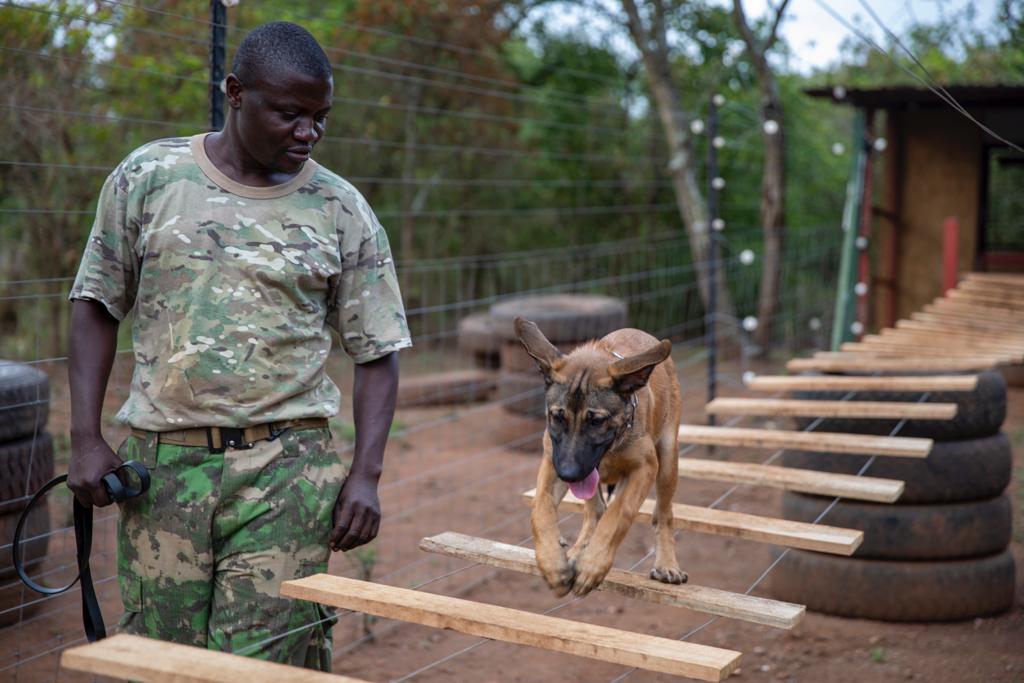
Trainer Boaz takes three-month-old Thor through his paces at Akagera National Park, Rwanda. Thor and his siblings will be at the forefront of African Parks’ counter-poaching operations in Akagera. Picture: Anton Crone
Their efforts have brought the number of poached animals down significantly, from 180 in 2012 to five in 2015. Only two people were arrested and just six snares were removed in 2017. Akagera’s new trainees are part Belgian Malinois which are known for their confidence, intelligence and stamina, and part mixed breed from Rwanda which are less susceptible to the tsetse fly transmitted disease, trypanosomiasis.
ALSO READ
Two rhino and shark poachers sentenced to 14 years in prison
New pangolin-friendly farm fencing could reduce electrocution

